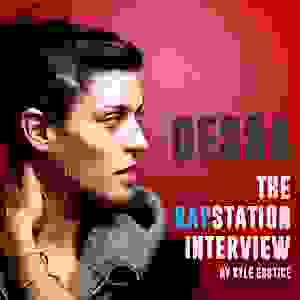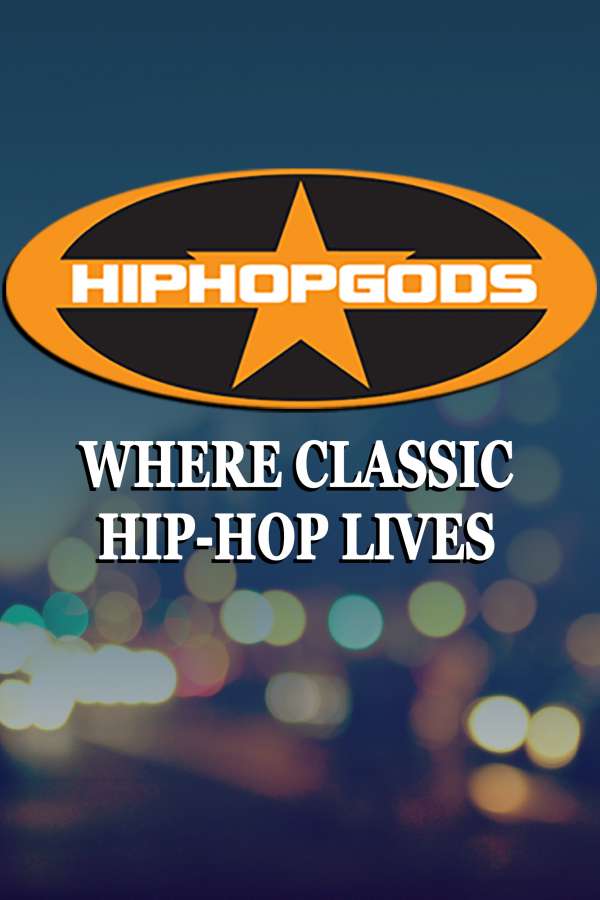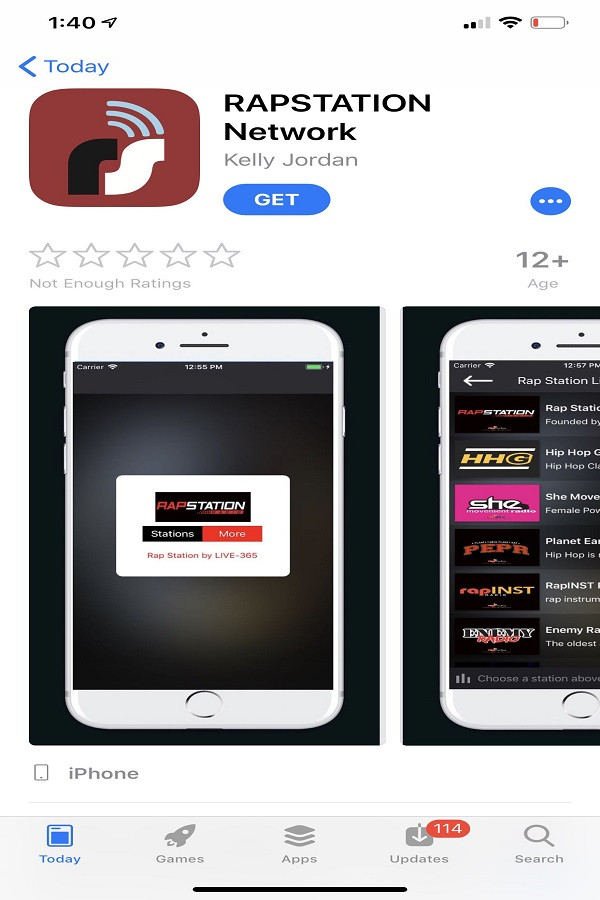
Dessa is unpacking her suitcase when she picks up the phone. As the sole female voice of Minneapolis hip-hop collective Doomtree, she’s used to living on the road, especially when pushing a new project. The group’s most recent album, All Hands, dropped last year and members Lazerbeak, P.O.S., Cecil Otter, Mike Mictlan, Sims, Paper Tiger, and of course, Dessa, have been all over the world promoting their unique brand of hip-hop.
When she’s not traveling with the boys, however, she’s focused on solo albums, her female acapella group Boys Soprano, short stories, poetry, or one of her many other creative endeavors. As president of Doomtree Records, she’s got her hands full on the business side, as well.
Since her solo debut EP, 2005’s False Hopes, she’s proven to be a force all her own with several emotionally charged bodies of work, including 2010’s A Badly Broken Code and 2013’s Parts of Speech. With a clear love for harmony and appreciation for the written word, her pen game perfectly compliments her powerful voice.
Dessa was recently commissioned by the Minnesota Orchestra in Minneapolis for a 2017 performance with a full symphony backing her. Over the next year, she’ll be at the drawing board, presumably creating some of her most provocative work yet. In the meantime, she took a moment out of her hectic life to talk touring, writing at 2 a.m. and trying to balance it all.
RAPstation (Kyle Eustice): How is touring over there different from the States?
Dessa: I guess it depends where. The vibe in the room varies considerable if that room is in London or Prague or Germany. As you travel eastwards, it’s usually the case you’re dealing with people who learned English as a second language. Maybe it’s because more of the music is being communicated through the production and movement on stage rather than the lyrics. We felt very well received, particularly in Germany and the U.K.
I want to talk a little bit about Boys Soprano. Are you still doing that project first of all?
Every once in awhile. Boys Soprano is the presentation of material with female voices, usually with minimal accompaniment so it’s usually a voice based project, where I’ll write most of the music and then we’ll ask a rotating cast of singers to help me present it. We’ll all wear white dresses with black boots so it’s kind of like a whiskey-drinking choir kind of show.
I watched a couple videos. It seems like the most raw form of music you could possibly present. How do you have so much confidence doing something so difficult?
I love harmony. Even though it’s just me up there with my voice as an instrument, the musicality resides in harmony, which is a sound the human voice can’t make by itself. For me, I think I get more satisfaction out of the relationship between voices than I do out of one particular melody.
Do you feel naked up there?
I don’t do it alone. I hire four women to get up there with me to get that harmony sound. It’s like a miniature choir.
What about the solo stuff?
I am working on a new record. My biggest recent announcement is that I partnered with the Minnesota Orchestra to do a whole night of music with their symphonic orchestra here in Minneapolis. The date for that performance is 2017 so in the next year, I will be writing a lot of new material and working with arrangers to reimagine existing material to make for a kind of show I’ve never tackled before.
How did this idea come to fruition?
I sang with a full choir here, so like 100 voices. I love it. I love the enormity of the sound and I enjoy being on a stage that’s so well designed acoustically. When I got a call initially from the Minnesota Orchestra, it was all I could do to say yes before they were even done asking the question. I was super stoked. I love the idea of live players who are masters of their craft, helping to reimagine some of these songs.
Is it just one performance or it is a whole season?
It’s a full evening, so two sets with an intermission in between. Right now, just one performance is on the books right now.
Are you hoping that might evolve into more?
Yeah, I think I’ve got a very plate just trying to pull this one off, but of course, yes. It’s hard not to get ahead of yourself and imagine the next one, and the next one, and the next one [laughs]. Right now, I just have to make sure this one kicks ass. It has to be beautiful, but still aggressive, you know?
I also read you’re the CEO of Doomtree. Is that true?
I was CEO for years and I just switched positions with Lazerbeak because I’m touring a lot. He’s totally killed it on the business side of Doomtree Records. So he’s CEO and I’m now president.
That’s a lot to balance.
There is a lot. You do get good at typing with your laptop balanced on your knees because there’s a lot of work that gets done in moving vehicles, or anytime I’m waiting in line, I’m typing out an email—whether I’m at the supermarket with a bag of groceries in my hand or at my optometrist, every idle moment is part of the game. The schedule in a touring life is varied. It doesn’t adhere to any particular routine. To stay productive, you have to get a little creative.
Keeps you on your toes. It’s a great way to stay productive in 2016, especially when you’re running your own business. What do you want your fans to know about you they might not know?
To be honest, I try to make sure most of my focus is on the music. If I think too much about how that music will be received, you’ll drive yourself insane [laughs]. I would say one of the defining characteristics with the people who listen to my music is I want both of us on each side of that relationship to be driven only by inclination. I don’t owe a big record label anything. I don’t owe an individual listener anything, other than the normal share of human respect, and they don’t owe me anything. Trying to conceptualize our relationship that way helps me try to be brave on every record knowing there might be somebody who really liked the last one who just doesn’t feel the next project, and I have to be ok with that because I won’t take risks that are large enough if I’m not. Of course, everybody hates to fail and hates to lose something they already had. That’s even worse than not having it at all [laughs].
It’s like getting a taste and then losing it.
Yeah. For me, it’s very much an “at-will” relationship—come and stay if you like it. If you don’t, find something you do like.
How do you balance solo Dessa, Doomtree Dessa, author Dessa, etc?
There are some days when you don’t feel particularly creative. I try to keep my nose to the grindstone and say, ‘Ok, if lyrics aren’t coming to you today, then today can be the day you answer all your emails.’ And then on another day, I think, ‘Ok, my voice isn’t good so you shouldn’t be recording anything. Why don’t you sit down with one of your short stories you’re writing and see if there’s any traction there.’ It’s almost like, ‘Ok, how can you make this next hour work for you?’ It also depends on your mood. I can’t always sit and force great artistic content. For me, it’s almost like staying busy, keeping the shit moving and on course until I’m lucky enough to get one of those days, one of those moments, one of those hours that feels artistically productive. So yesterday, I went to bed at 2 a.m., but it had been a really long time since I had a good musical idea. At 10:30 p.m. or 11, one finally hit me. It was like put everything else away and close the Netflix House of Cards window I was gonna watch before I went to bed, pour another glass of wine and just stay up until it ran out. In part, I’m lucky I have a life where I’m able to do that. If I ended up staying up until four in the morning, I don’t have to wake up for anything early in the morning [laughs]. I don’t have an alarm clock.
That’s always nice.
For me, I work really long days, but I don’t have a good partition between when I’m off the clock and when I’m on the clock. It’s almost like all of the effort is to keep the boat afloat. Whether it’s doing the dishes, booking a tour or writing a song, it’s all in the interest of keeping the machine running. Because I’m an entrepreneur, I’m the only machine here.
Right, you’re the only one that’s going to get it done.
Not only that, but it all just seems so related. I don’t outsource anything—vacuuming or trying to write a lyric or figuring out a marketing plan. I happen to really like the business side of it, too. So yeah my day is usually a mix of some domestic nonsense—cooking, cleaning and cleaning up after last night’s whatever.
I’m doing the laundry right now as we speak [laughs].
Exactly. It’s part of the machine, man. The person on the phone has to be clothed.
What do you think of “fame,” despite what level it is?
On a very basic level, when you’re well received at your own concert, it feels good. It’s like a measure of you doing your job well. If people weren’t really excited when you hit the stage, you’ve fucked up recently [laughs]. On the other hand, I think it can be good for the career, but not good for the organism. It’s easy because I spend so much time trying to figure out how to write the music, how to share the music, how to distribute the music, and how to distribute the music. Sometimes in the rush of all of that urgent consideration, you forget to expand scope of attention, and think about other things and other people. Sometimes I think this career is so difficult that sometimes I can focus on it at the expense of other things. You get blinders on. You get caught up in your own head. It’s not the most generous way to be alive. For me, becoming too hyper-focused and entirely occupied with art and the business of art can blunt your empathy. I hate that idea.
Do you spend a lot of time alone?
I do—an incredible amount of time.
I can relate to that. If I get caught in my head, I have to break out and go on a bike ride or a hike—something.
Yeah and get out. I think it’s tricky because on tour, the performance aspect is so social. I’m constantly accompanied. Sometimes when I come home, I just want to be alone then I realize I haven’t sought out people’s company for friendships for non-work reasons [laughs]. I’m lucky I work with so many friends. I get a lot of companionship with Doomtree. But because I’m so overstimulated socially as part of the job, my impulse to cocoon up for awhile leaves this hole where maybe you haven’t done your do-diligence socially.
It’s a tough balance.
Yeah, when you only see people you work with or only see people when you’re working.
It can be done though. I think we’ll be alright [laughs].
I think so, too.

